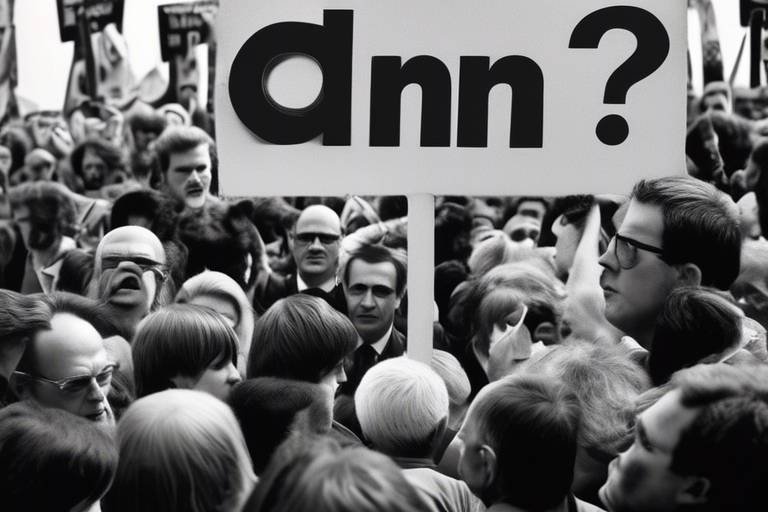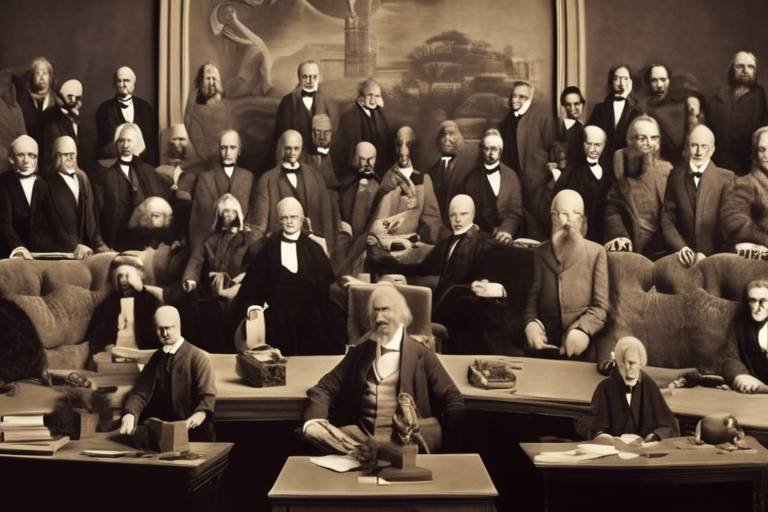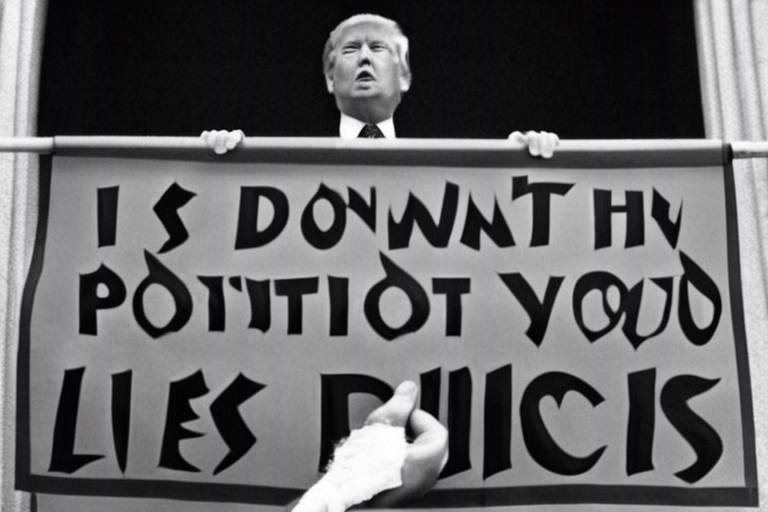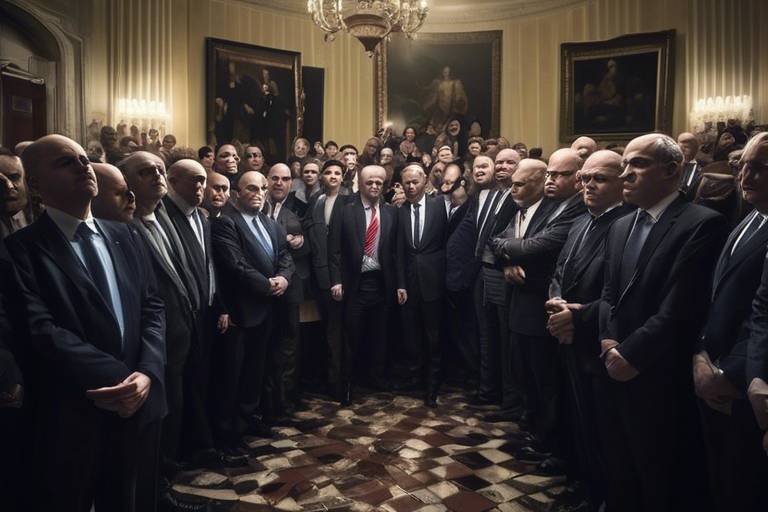The Political Power of Language - A Philosophical Perspective
Language is more than just a means of communication; it is a powerful tool that shapes our realities and influences our political landscapes. From the words we choose to the metaphors we use, language has the ability to construct ideologies, frame political narratives, and even dictate the power dynamics within societies. It is fascinating to consider how a simple phrase can rally people together or drive them apart, making language a pivotal element in the realm of politics.
At its core, the relationship between language and politics is intricate and multifaceted. Philosophers and linguists alike have explored how language not only reflects our thoughts but also molds them. For instance, consider the phrase "the war on poverty." This metaphor does not merely describe a social issue; it frames it as a battle, invoking images of conflict and urgency. Such linguistic choices can mobilize public opinion, galvanizing support or opposition based on how issues are presented.
Moreover, language can serve as a means of inclusion or exclusion. Political discourse often utilizes specialized jargon or complex terminology that can alienate those not versed in it. This exclusivity reinforces existing power structures, as those in authority dictate the terms of engagement. For instance, when political leaders speak in a language laden with technical terms, they may inadvertently disenfranchise marginalized communities who lack access to such knowledge. This dynamic raises important questions about who gets to participate in political discussions and who remains on the sidelines.
As we delve deeper into the political power of language, we must also consider the implications of language policies. Such policies can either empower communities or serve as instruments of oppression. For example, a government might promote a dominant language while marginalizing minority languages, effectively silencing those voices and undermining their political representation. The impact of these policies can be profound, affecting everything from social cohesion to individual identity.
In an increasingly globalized world, the interplay between language and nationalism becomes even more pronounced. Language often acts as a marker of national identity, capable of uniting people under a common banner or dividing them along linguistic lines. This phenomenon can be seen in various regions where language differences have fueled tensions and conflicts. Understanding this relationship is crucial for navigating the complexities of modern politics.
As we look to the future, the evolution of language in the digital age presents new challenges and opportunities. Social media platforms, for instance, have transformed the way political messages are disseminated and consumed. The rise of emojis, memes, and shorthand language has created a new lexicon that can both simplify and complicate political discourse. As we adapt to these changes, it is essential to remain vigilant about the implications for political engagement and public understanding.
In conclusion, the political power of language cannot be overstated. It shapes our identities, influences our beliefs, and ultimately determines the course of political action. By examining the philosophical underpinnings of language in politics, we can better understand the dynamics at play and work towards a more inclusive and equitable political discourse.
- How does language influence political identity?
Language allows individuals and groups to express their beliefs and values, shaping their political identities and participation. - What role does rhetoric play in politics?
Rhetoric is a persuasive tool that leaders use to mobilize the masses and influence public opinion. - Can language policies impact social cohesion?
Yes, language policies can either empower communities or disenfranchise them, affecting social unity and political representation. - How does globalization affect political language?
Globalization leads to the blending of languages, influencing political communication and local cultures. - What are the future trends in political language?
The rise of digital communication is changing how political messages are created and shared, leading to new forms of engagement.
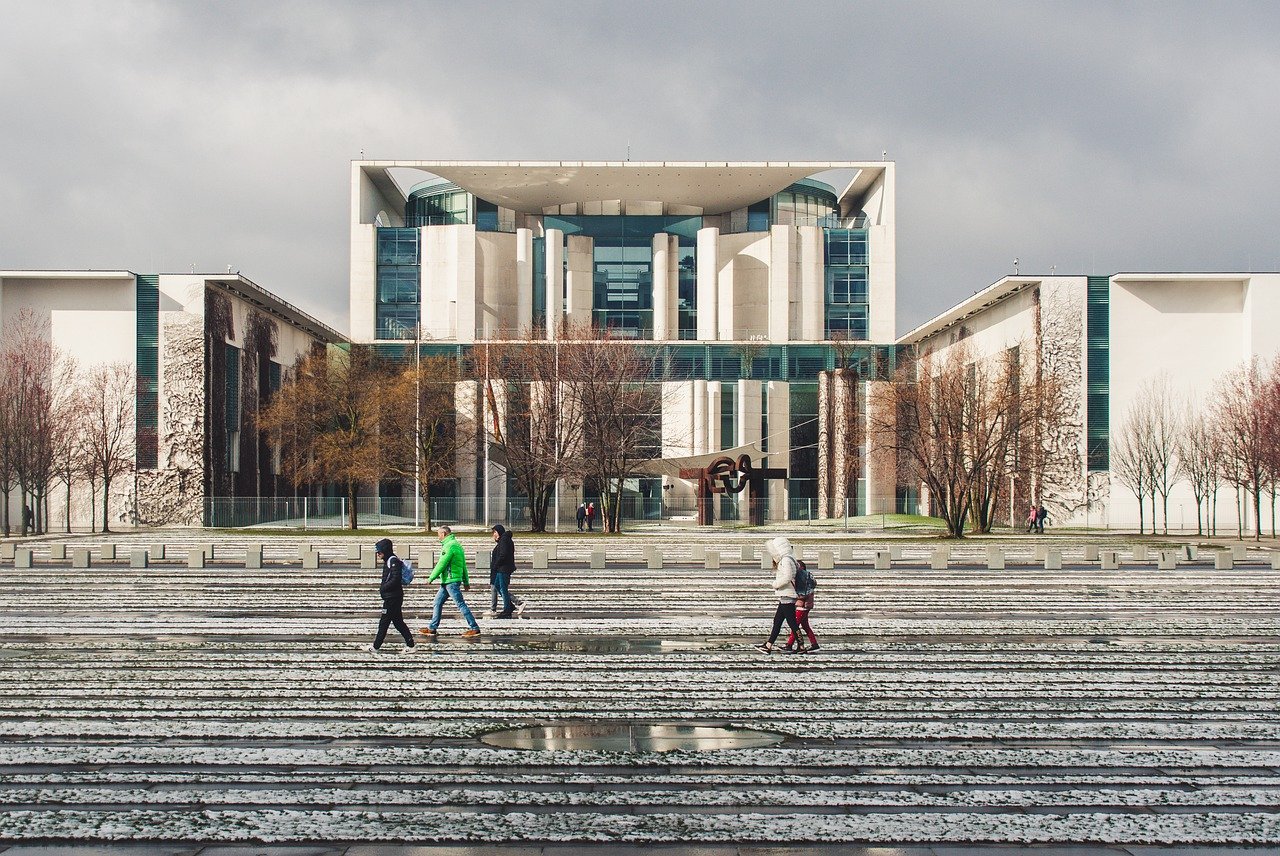
The Influence of Language on Political Identity
Language is not merely a tool for communication; it is a powerful force that shapes our political identities. From the words we choose to the dialects we speak, language acts as a mirror reflecting our beliefs, values, and affiliations. Think about it: when you hear someone speak in a particular way, it often conjures up images of their background, education, and even their political leanings. This connection between language and identity is profound and multifaceted, influencing not just individual perspectives but also collective movements.
In many societies, language serves as a marker of political belonging. Consider how political groups often adopt specific terminologies to distinguish themselves from others. For instance, phrases like "social justice" or "national security" resonate differently across various political spectrums. These terms are not just buzzwords; they encapsulate ideologies that rally supporters and create a sense of unity among like-minded individuals. When people identify with these terms, they are not just engaging in political discourse—they are embracing a shared identity that influences their actions and beliefs.
Moreover, language can evoke a sense of community and solidarity among individuals who share similar linguistic backgrounds. For example, in multilingual nations, specific languages can symbolize regional pride and cultural heritage. This phenomenon often leads to the formation of political movements that advocate for the rights and recognition of linguistic minorities. By championing their language, these groups assert their identity and demand a place within the political landscape. Thus, language becomes a rallying point, a means through which marginalized voices can be amplified.
On the flip side, the influence of language on political identity can also lead to exclusion. In many cases, those who do not conform to the dominant language or dialect may find themselves sidelined in political discussions. This exclusion can manifest in various ways, from the lack of representation in political institutions to the inability to participate fully in civic life. For instance, consider a community where the official language is not the mother tongue of a significant portion of the population. The barriers created by language can prevent these individuals from voicing their concerns or advocating for their rights, leading to a disenfranchised populace.
To illustrate the impact of language on political identity, let’s take a look at a few examples:
| Language | Political Identity | Impact on Society |
|---|---|---|
| Spanish | Hispanic Nationalism | Strengthens cultural ties and advocates for immigration rights. |
| Bilingualism | Multiculturalism | Promotes inclusivity and representation in government. |
| English | Globalization | Facilitates international diplomacy but may overshadow local languages. |
In summary, the relationship between language and political identity is intricate and dynamic. It shapes how we perceive ourselves and others, influencing our participation in the political realm. As we navigate an increasingly diverse world, understanding this relationship becomes crucial. Language can unite us, but it can also divide us. The challenge lies in fostering an environment where all voices are heard and valued, regardless of the language they speak.
- How does language influence political movements?
Language can create a sense of identity and solidarity among group members, facilitating the mobilization of political movements. - Can language exclusion affect political representation?
Yes, individuals who do not speak the dominant language may struggle to participate in political discussions, leading to underrepresentation. - What role do metaphors play in political language?
Metaphors shape our understanding of political issues, framing narratives in ways that can influence public opinion and policy.
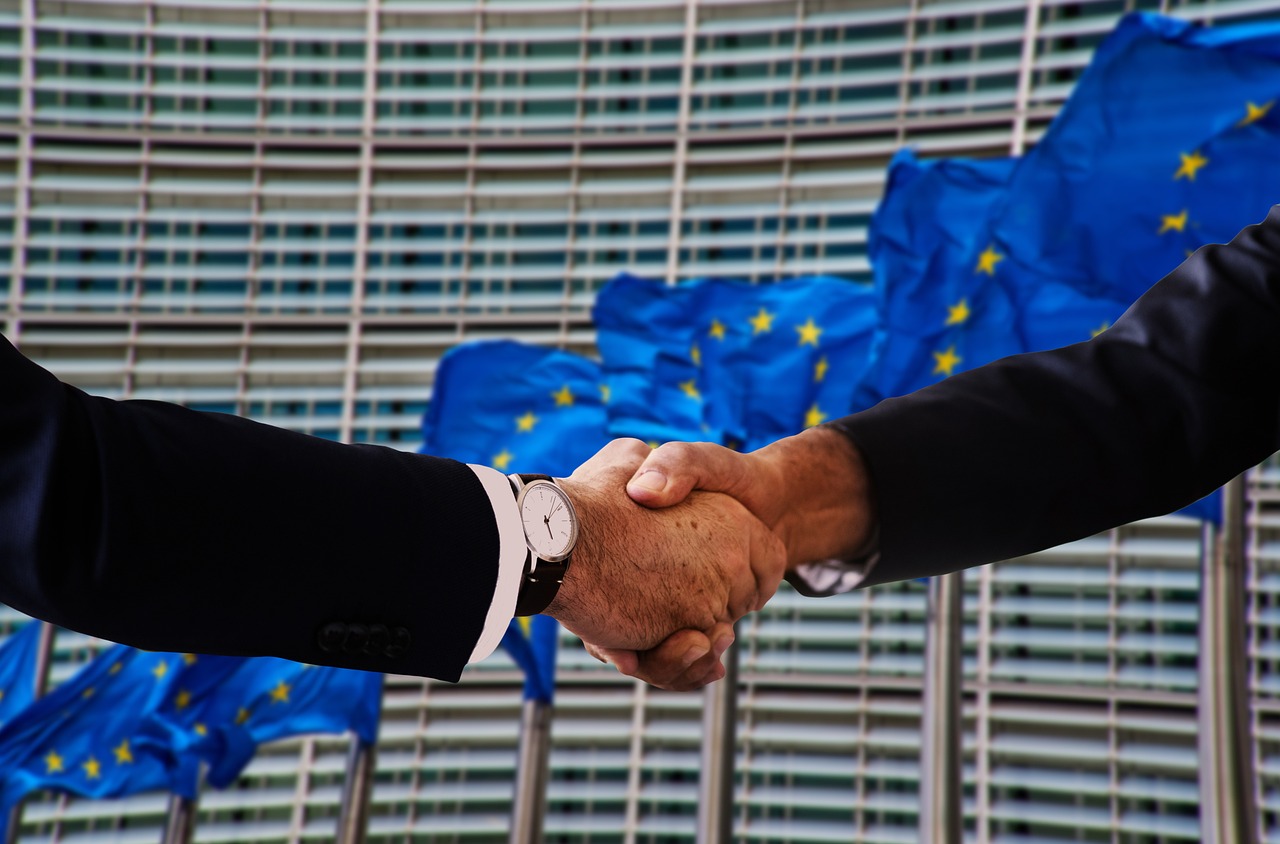
The Role of Rhetoric in Political Persuasion
Rhetoric, the art of persuasive speaking or writing, is a fundamental element in the realm of politics. It’s not merely about what is said but how it is said that can sway opinions and mobilize people. Politicians are akin to skilled artists, painting vivid pictures with their words to evoke emotions, create connections, and ultimately influence the masses. Think about it: when a leader stands before a crowd, it’s not just their policies they’re selling; it’s the very essence of their vision, wrapped in carefully chosen language that resonates deeply with their audience.
At its core, rhetoric operates on several levels. It can appeal to logic, emotions, or ethical considerations. These three pillars—logos, pathos, and ethos—form the foundation of effective political persuasion:
- Logos: This is the logical appeal, where facts, statistics, and rational arguments are presented to convince an audience. For instance, when a politician discusses economic growth, they might use data to illustrate their point.
- Pathos: Emotional appeal is crucial in politics. By tapping into the feelings of their audience—whether it’s fear, hope, or pride—politicians can create a powerful connection. Think of speeches that make you feel a surge of patriotism or empathy.
- Ethos: This refers to the credibility of the speaker. A politician with a strong ethical stance or a history of integrity can persuade more effectively because the audience trusts them.
The effectiveness of rhetoric is further amplified by the use of various rhetorical strategies. For instance, repetition can drive a point home, making it more memorable. Consider the famous phrase “Yes We Can” used by Barack Obama during his campaign. This simple yet powerful slogan not only inspired hope but also became a rallying cry for change.
Moreover, metaphors serve as another potent tool in the political rhetorical arsenal. They allow complex ideas to be simplified and made relatable. For example, referring to a political opponent as a "wolf in sheep's clothing" instantly conjures images of deceit and danger, making the message clear and impactful. Such linguistic choices shape not only how messages are received but also how they are interpreted in the broader political context.
However, it’s essential to recognize that rhetoric can also be a double-edged sword. While it can inspire and mobilize, it can also mislead and manipulate. The same techniques that can unite a populace can just as easily sow discord. This is why understanding rhetoric is crucial for both politicians and citizens. By being aware of rhetorical strategies, individuals can critically assess the messages they receive and make informed decisions.
In conclusion, rhetoric is not just a tool for politicians; it’s a fundamental aspect of political engagement. It shapes our perceptions, influences our beliefs, and ultimately drives political action. As we navigate the complex world of politics, recognizing the power of language can empower us to engage more thoughtfully and critically in political discourse.
- What is rhetoric? Rhetoric is the art of persuasive speaking or writing, often used in politics to influence opinions and mobilize people.
- How does rhetoric impact political discourse? Rhetoric shapes how messages are conveyed and received, influencing public opinion and political outcomes.
- What are the main appeals in rhetoric? The main appeals are logos (logic), pathos (emotion), and ethos (credibility).
- Can rhetoric be used for manipulation? Yes, while rhetoric can inspire, it can also mislead. Understanding its use helps individuals critically assess political messages.

Language is not just a tool for communication; it is a powerful instrument that shapes our perception of reality. The words we choose to use, the phrases we adopt, and the narratives we construct all play a pivotal role in framing our understanding of political issues. When we engage in political discourse, we are not merely exchanging ideas; we are actively participating in the construction of reality itself. This process can be likened to an artist painting a canvas, where each stroke represents a choice of words that colors our understanding of events and ideologies.
Consider how different terms can evoke vastly different emotions and reactions. For instance, labeling a group of people as "freedom fighters" versus "terrorists" can lead to entirely different perceptions of their actions. This linguistic choice not only reflects a bias but also shapes public opinion and influences political outcomes. The implications are profound: language can create heroes or villains, allies or enemies, depending on how it is wielded.
Moreover, the way language constructs reality extends beyond mere labels. It involves the narratives we create around political events. For example, when discussing economic policies, the framing of terms like "tax relief" versus "tax cuts" can significantly alter public perception. While both phrases may refer to similar policies, the former suggests a benevolent act of generosity, while the latter might imply a loss of necessary revenue. This subtle shift in language can lead to different public responses and, ultimately, different political actions.
To illustrate this concept, let's take a closer look at some examples of how language shapes our political reality:
| Term | Framing | Potential Impact |
|---|---|---|
| Tax Relief | Generosity | Increased public support for policies |
| Tax Cuts | Loss of revenue | Public skepticism and resistance |
| Climate Change | Global Crisis | Urgency for action |
| Global Warming | Natural Cycle | Dismissal of scientific consensus |
As we can see from the table, the linguistic choices we make can lead to vastly different interpretations and reactions. This underscores the importance of being aware of the language we use in political discussions. By understanding how language constructs reality, we can become more critical consumers of information and more effective communicators in our own political engagements.
In addition to framing, the linguistic construction of reality also involves the use of metaphors. Metaphors can simplify complex political issues, making them more relatable and understandable. For example, describing the economy as a "machine" implies that it can be fixed or broken, suggesting that careful adjustments can lead to improvement. Conversely, referring to it as a "living organism" implies that it grows and evolves, requiring nurturing and care. These metaphors not only shape our understanding but also influence the policies we advocate for and support.
Ultimately, the linguistic construction of reality is a dynamic and ongoing process. As language evolves, so too does our understanding of political issues. By critically examining the language we encounter and use, we can become more aware of its power to shape our perceptions and influence our actions. This awareness is essential for fostering a more informed and engaged citizenry capable of navigating the complexities of modern political discourse.
- How does language influence political identity?
Language allows individuals to express their beliefs and values, shaping their political affiliations and participation. - What role does rhetoric play in politics?
Rhetoric is a persuasive tool that leaders use to mobilize support and shape public opinion. - Can language exclude certain groups from political discourse?
Yes, specific linguistic practices can reinforce power structures and marginalize certain communities. - How do metaphors affect political understanding?
Metaphors simplify complex issues and can influence public perceptions and policy preferences.

Metaphors in Political Discourse
Metaphors are not just poetic devices; they are powerful tools that shape our understanding of complex political issues. When politicians use metaphors, they are not merely embellishing their language; they are framing the way we perceive reality. For instance, when a leader refers to a political opponent as a "snake," it conjures images of deceit and treachery, influencing public perception in a profound way. This linguistic choice does more than convey a message; it constructs a narrative that can sway opinions and mobilize voters.
Consider how metaphors can simplify intricate political concepts. By likening economic policies to a "tightrope walk," politicians can convey the precarious nature of fiscal responsibility. This metaphor not only captures the essence of the situation but also evokes an emotional response, making the policy more relatable to the average citizen. Such linguistic strategies are crucial in a world where people are bombarded with information and often struggle to grasp the nuances of political discourse.
Moreover, metaphors often reveal the underlying values and assumptions that shape political beliefs. For example, the metaphor of "war" used in political rhetoric can frame social issues—like poverty or healthcare—within a context of conflict. This approach can galvanize support for policies by portraying them as essential battles to be fought. However, it can also create division, as it implies that those who oppose such measures are on the "wrong side" of the fight.
In addition to shaping beliefs, metaphors can reinforce societal norms and power dynamics. For instance, when language surrounding immigration is framed in terms of "invasion," it not only dehumanizes immigrants but also solidifies a narrative that justifies exclusionary policies. This linguistic choice can perpetuate stereotypes and foster an environment of fear and hostility, demonstrating how metaphors can serve as tools of exclusion in political discourse.
Ultimately, understanding the role of metaphors in political discourse is essential for critically engaging with the messages we encounter. By dissecting these linguistic constructs, we can uncover the hidden agendas and biases that influence political narratives. As we navigate the complexities of modern politics, being aware of the metaphors at play allows us to challenge dominant narratives and advocate for a more inclusive and equitable discourse.
- What are metaphors in political discourse? Metaphors in political discourse are figurative expressions that help frame and simplify complex political issues, influencing how the public perceives and understands these topics.
- How do metaphors shape political beliefs? Metaphors shape political beliefs by framing narratives in a way that evokes emotional responses and aligns with underlying values and assumptions, often simplifying complex issues.
- Can metaphors be used to exclude certain groups? Yes, metaphors can serve as tools of exclusion by dehumanizing certain groups or framing them negatively, which can reinforce power dynamics and perpetuate inequalities.
- Why is it important to analyze metaphors in politics? Analyzing metaphors in politics is important because it helps uncover hidden agendas, biases, and the societal implications of political language, enabling more informed and critical engagement.

Language as a Tool of Exclusion
Language is not just a means of communication; it is a powerful instrument that can both include and exclude. In the realm of politics, the way we use language can significantly impact who gets a seat at the table and who remains on the outside looking in. Think about it: when political leaders speak in a language or jargon that is inaccessible to the average person, they inadvertently create a barrier that keeps many from participating in the political process. This exclusion can manifest in various forms, from the technical language of legislation to the regional dialects that may alienate certain groups.
Moreover, the choice of language often reflects deeper societal hierarchies. For instance, in many countries, the official language is tied to the dominant culture, leaving speakers of minority languages feeling marginalized. This linguistic hierarchy can lead to a sense of inferiority among those who are not fluent in the official language, reinforcing existing power dynamics. When political discourse is dominated by a particular language, it not only shapes public opinion but also determines who has the right to speak and be heard.
One striking example is the use of legal jargon in legislative processes. When lawmakers draft bills filled with complex terminology, they risk alienating citizens who do not possess a legal background. This creates a situation where the very people affected by these laws may not fully understand their rights or the implications of the legislation. As a result, they may feel powerless or disillusioned, further entrenching their exclusion from the political dialogue.
Additionally, language can be used deliberately as a tool of exclusion. Politicians may employ specific phrases or idioms that resonate with a particular demographic while alienating others. For instance, during election campaigns, candidates often tailor their speeches to appeal to certain groups, using language that reinforces shared identities. This can lead to the marginalization of those who do not identify with those groups, creating a sense of division within society.
To illustrate this point, consider the following table that outlines how language can serve as a barrier in various political contexts:
| Context | Language Use | Impact on Exclusion |
|---|---|---|
| Legislation | Complex legal jargon | Excludes non-experts from understanding laws |
| Political Campaigns | Targeted idioms and phrases | Alienates those outside the target demographic |
| Official Communications | Use of dominant language only | Marginalizes speakers of minority languages |
In conclusion, language serves as both a bridge and a barrier in the political arena. It is essential to recognize how linguistic choices can reinforce power structures and perpetuate inequalities. By fostering an inclusive linguistic environment, we can work towards a political landscape where everyone has a voice and the opportunity to participate. Understanding the implications of language in politics is the first step toward dismantling these barriers and creating a more equitable society.
- How does language exclusion affect political participation?
Language exclusion can alienate individuals from engaging in political discourse, leading to a lack of representation and understanding of their rights. - What role does legal jargon play in political communication?
Legal jargon can create barriers for non-experts, making it difficult for the average citizen to understand important legislation. - How can we promote inclusivity in political language?
By simplifying language, providing translations, and ensuring diverse representation, we can create a more inclusive political environment.

The Impact of Language Policy on Society
Language policy is a powerful force that can either unite or divide communities. It shapes the way individuals interact with each other and their government, influencing everything from education to employment opportunities. When a government implements a language policy, it not only decides which languages are recognized and used in official contexts but also implicitly communicates which cultural identities are valued. This has profound implications for social cohesion and political representation.
Take, for example, the case of bilingual education programs. These initiatives can empower minority language speakers, providing them with the tools they need to succeed in a society that may prioritize a dominant language. However, when such programs are underfunded or poorly implemented, they can lead to feelings of exclusion and resentment among those who feel their language and culture are not being adequately recognized. This can create a rift between different linguistic groups, fostering an environment of tension rather than unity.
Furthermore, language policies can reinforce existing power dynamics. For instance, in countries where the official language is imposed upon non-native speakers, these individuals may find themselves at a disadvantage in political and economic arenas. This creates a cycle of disenfranchisement where those who do not speak the dominant language are unable to participate fully in society. The table below illustrates some of the potential impacts of language policy on various aspects of society:
| Aspect | Positive Impact | Negative Impact |
|---|---|---|
| Education | Increased access to education for minority language speakers | Underfunded programs leading to inadequate support |
| Employment | Greater job opportunities for bilingual individuals | Exclusion from job markets for non-native speakers |
| Political Representation | Empowerment of minority groups through language rights | Marginalization of voices not represented in dominant language |
In addition to these practical implications, language policy also has a symbolic dimension. It can serve as a representation of national identity and cultural heritage. For instance, countries that promote multiple languages may be seen as more inclusive and democratic. On the other hand, a strict monolingual policy can signal a rejection of diversity, leading to social fragmentation. This is particularly evident in multilingual nations where different language groups may feel that their identities are being threatened by dominant language policies.
In conclusion, the impact of language policy on society is multifaceted. It can either foster inclusivity or perpetuate inequality, depending on how it is structured and implemented. As we move towards an increasingly globalized world, understanding the nuances of language policy becomes crucial. It is not just about words; it is about the power dynamics they create and the identities they shape.
- What is language policy? Language policy refers to the laws and regulations that govern the use of languages within a particular territory or community.
- How does language policy affect education? Language policy can determine the languages of instruction in schools, which impacts the accessibility and quality of education for students from different linguistic backgrounds.
- Can language policy influence political representation? Yes, language policy can either empower or disenfranchise communities, affecting their ability to participate in political processes.
- What are some examples of language policies? Examples include bilingual education programs, official language designations, and language rights legislation.

Language and Nationalism
Language is not just a means of communication; it is a powerful tool that shapes our identity and influences our sense of belonging. In the context of nationalism, language becomes a cornerstone of national identity. It acts as a unifying force, bringing people together under a common banner of shared words and expressions. When we think about nationalism, we often envision flags and anthems, but at its core, it is the language that binds communities, evokes emotions, and fuels collective aspirations.
Throughout history, many nations have used language as a rallying point to foster unity among their citizens. For instance, in countries with multiple languages, the promotion of a national language often serves to strengthen national identity. This can be seen in places like France, where the French language is not just a mode of communication but a symbol of cultural pride and heritage. The government actively promotes French over regional languages, reinforcing the idea that to be French is to speak French. This practice can create a sense of belonging among speakers while excluding those who do not share the same linguistic background.
However, the relationship between language and nationalism is not always harmonious. In many cases, the imposition of a dominant language can lead to the marginalization of minority languages and cultures. This exclusion can breed resentment and conflict, as those who feel their identity is threatened may react with fervent nationalism. For example, in countries like Spain, the push for Catalan language rights has become a significant aspect of the Catalonian independence movement. Here, language is not just about communication; it represents a struggle for recognition and autonomy.
Moreover, the role of language in nationalism can be further illustrated through the concept of linguistic nationalism. This ideology posits that a nation is defined by its language, leading to the belief that preserving a language is tantamount to preserving a culture. Such beliefs can prompt movements aimed at revitalizing endangered languages, as seen with the Welsh language in the United Kingdom. Efforts to promote Welsh in education and public life have not only bolstered the language but have also reinforced Welsh identity and pride among its speakers.
In the age of globalization, the dynamics of language and nationalism are evolving. The spread of dominant languages like English can dilute local languages and cultures, leading to a homogenization of identities. Yet, this can also spark a counter-movement where communities rally to protect their linguistic heritage. The interplay between globalization and nationalism creates a fascinating tension, as nations grapple with the challenges of maintaining their unique identities in a rapidly changing world.
To better understand the impact of language on nationalism, consider the following table that outlines key aspects of this relationship:
| Aspect | Impact |
|---|---|
| Unification | Creates a sense of belonging among speakers |
| Exclusion | Marginalizes non-dominant language speakers |
| Cultural Preservation | Revitalizes endangered languages and cultures |
| Globalization | Challenges local languages and identities |
Ultimately, the interplay between language and nationalism is a complex and multifaceted phenomenon. It can inspire unity and pride, but it can also lead to division and conflict. As we navigate this linguistic landscape, it’s essential to recognize the power of words and the profound impact they have on our identities and societies. The future of nationalism will likely hinge on how we manage this relationship, balancing the need for a common language with the importance of preserving linguistic diversity.
- How does language influence national identity?
Language serves as a primary means of communication and expression for a group, helping to foster a sense of belonging and shared culture. - What is linguistic nationalism?
Linguistic nationalism is the belief that a nation is defined by its language, leading to movements aimed at preserving and promoting that language. - Can language promote social cohesion?
Yes, a common language can help unify people and strengthen social bonds, but it can also marginalize those who do not speak it. - How does globalization affect local languages?
Globalization often leads to the dominance of certain languages, which can threaten the survival of local languages and cultures.

The Globalization of Language and Politics
The landscape of language and politics is undergoing a seismic shift due to the forces of globalization. In our interconnected world, languages are not just tools for communication; they are dynamic entities that evolve, intermingle, and sometimes clash. Have you ever considered how the languages we speak can influence our political beliefs? As dominant languages spread across borders, they bring with them cultural nuances and political ideologies that can reshape local identities.
One of the most striking impacts of globalization is the emergence of a lingua franca. English, for instance, has become the global language of diplomacy, business, and even social media. This dominance can lead to a homogenization of political discourse, where local languages and dialects risk being overshadowed. Imagine a vibrant tapestry of diverse voices, where each thread represents a unique culture, slowly unraveling as the louder, more dominant threads pull them away. This phenomenon raises critical questions: Are we losing the richness of local political narratives? What happens to the voices of those who cannot express their ideas in this global tongue?
Moreover, the globalization of language has a profound effect on political engagement. Political movements and campaigns are increasingly conducted in a digital arena, where messages can spread like wildfire across continents. Social media platforms allow for instant communication, enabling political leaders to reach vast audiences. However, this accessibility also means that misinformation can proliferate just as rapidly. For instance, during elections, misleading narratives can be shared widely, influencing public opinion and potentially swaying electoral outcomes. The challenge lies in discerning credible information from the noise, a task that can be daunting in a world where language is both a bridge and a barrier.
To illustrate the impact of globalization on political language, consider the following table that highlights key aspects:
| Aspect | Impact of Globalization |
|---|---|
| Language Dominance | Emergence of a global lingua franca (e.g., English) leading to cultural homogenization. |
| Political Engagement | Increased access to political discourse through digital platforms, but also a rise in misinformation. |
| Identity | Local languages may be marginalized, affecting cultural identity and political representation. |
As we navigate this complex landscape, it’s crucial to recognize the dual nature of globalization. While it can foster cross-cultural dialogue and understanding, it can also perpetuate inequalities and dilute local voices. The challenge for future generations will be to embrace the benefits of a globalized political language while ensuring that local cultures and languages are preserved and respected. After all, a vibrant democracy thrives on diversity, and every voice matters.
- How does globalization affect local languages? Globalization can lead to the dominance of a few languages, often overshadowing local dialects and languages, which may diminish their usage and cultural significance.
- What role does social media play in political discourse? Social media amplifies political messages and facilitates engagement, but it can also spread misinformation quickly, complicating the political landscape.
- Can local languages coexist with dominant global languages? Yes, local languages can coexist and thrive alongside dominant languages through efforts to promote cultural heritage and multilingual education.

The Future of Political Language
As we venture further into the 21st century, the landscape of political language is undergoing a significant transformation. The rise of digital communication has reshaped how we engage with political discourse, making it more immediate and accessible, yet also more complex. Think about it: just a few decades ago, political messages were primarily disseminated through traditional media such as newspapers, radio, and television. Today, social media platforms like Twitter, Facebook, and Instagram have become the new battlegrounds for political rhetoric. This evolution raises intriguing questions: How will these changes affect the way we understand and participate in politics?
One of the most notable shifts is the democratization of voice. With the advent of the internet, anyone with access can share their opinions, challenge political narratives, and mobilize support. This has led to a more pluralistic political environment where diverse perspectives can coexist. However, it also opens the door to misinformation and echo chambers, where individuals may only engage with viewpoints that reinforce their existing beliefs. The challenge lies in navigating this complex web of information to foster constructive political dialogue.
Moreover, the language used in political communication is becoming increasingly visual and emotive. Memes, GIFs, and short videos have emerged as powerful tools for political expression, often transcending traditional linguistic boundaries. These forms of communication can evoke strong emotional responses, making them effective for persuasion but also raising concerns about oversimplification of complex issues. The question we must ask ourselves is: Are we sacrificing depth for immediacy?
In addition to these trends, the impact of globalization cannot be overlooked. As languages intermingle and cultures collide, political language is becoming more hybridized. This fusion can lead to greater understanding among diverse groups, but it may also create tensions as local dialects and vernaculars struggle to maintain their unique identities. The future of political language will likely see a balancing act between embracing global communication and preserving local voices.
Furthermore, the role of artificial intelligence and machine learning in shaping political language is an area ripe for exploration. Tools that analyze language patterns and sentiment can provide insights into public opinion, potentially influencing political strategies. However, there is a fine line between leveraging technology for engagement and manipulating language to sway opinions. As we embrace these innovations, we must remain vigilant about the ethical implications of their use.
In summary, the future of political language is poised to be an exciting yet challenging journey. As we adapt to new forms of communication, we must strive to ensure that political discourse remains inclusive, informed, and respectful. The evolution of language in politics is not just about words; it’s about the very fabric of our society and how we choose to engage with one another. The power of language will continue to shape our political landscape, and it is up to us to wield that power wisely.
- How has social media changed political language? Social media has made political discourse more immediate and accessible, allowing diverse voices to be heard but also contributing to misinformation.
- What role does emotion play in political communication? Emotional appeals in political language can be powerful, often leading to stronger engagement but risking oversimplification of complex issues.
- How does globalization affect local languages in politics? Globalization leads to a hybridization of political language, which can enhance understanding but may also threaten local dialects and identities.
- What ethical concerns arise with AI in political language? While AI can analyze public sentiment, it raises concerns about manipulation and the authenticity of political engagement.
Frequently Asked Questions
- How does language shape political identity?
Language is like the canvas on which our political identity is painted. It allows individuals and groups to express their beliefs, values, and affiliations. Think of it this way: when you speak a particular language, you’re not just communicating; you’re also sharing a cultural background and a set of ideals that can influence your participation in political discussions and actions.
- What is the role of rhetoric in political persuasion?
Rhetoric is the secret sauce of political communication! It’s all about how leaders use language to persuade and mobilize people. Just like a skilled chef knows how to mix flavors, politicians use rhetorical strategies to manipulate public opinion and shape political outcomes. Understanding these strategies can help us see through the smoke and mirrors of political discourse.
- Can language really construct reality?
Absolutely! Language doesn’t just describe reality; it helps create it. The words we choose can frame political narratives in ways that significantly affect how we perceive events and ideologies. It’s like putting on a pair of glasses—depending on the lens, you might see the world quite differently!
- How do metaphors influence political discourse?
Metaphors are powerful tools in political language. They help simplify complex issues and make them relatable. For instance, describing a political struggle as a "battle" can evoke strong emotions and rally support. By analyzing these metaphors, we can uncover the underlying values and assumptions that shape political beliefs and behaviors.
- In what ways can language exclude marginalized groups?
Language can be a double-edged sword. While it can unite, it can also exclude. Specific linguistic practices can reinforce power structures and perpetuate inequalities, making it difficult for marginalized groups to have their voices heard in political discourse. It’s like being at a party where only certain languages are spoken; if you don’t speak them, you might feel left out!
- What is the impact of language policy on society?
Language policies can significantly impact social cohesion and political representation. They can empower communities by recognizing their languages or disenfranchise them by imposing dominant languages. Think of language policy as the rules of a game; if the rules favor one team over another, it can lead to unfair advantages and disparities.
- How does language relate to nationalism?
Language is often at the heart of national identity. It can fuel nationalist sentiments, bringing people together or driving them apart. A shared language can create a sense of belonging, while language differences can lead to division. It’s like a thread that weaves through the fabric of a nation, binding some while fraying others.
- What is the effect of globalization on language and politics?
Globalization is like a melting pot for languages and cultures. As languages evolve and intermingle, political communication also changes. The spread of dominant languages can overshadow local cultures and alter political dynamics worldwide, creating a complex web of influences that can be difficult to navigate.
- What does the future hold for political language?
The rise of digital communication is transforming the landscape of political language. With social media and online platforms, the way we engage in political discourse is evolving rapidly. Emerging trends, such as the use of emojis and memes, could have significant implications for political engagement and communication in the future. It’s like stepping into a new world where the rules of engagement are still being written!

